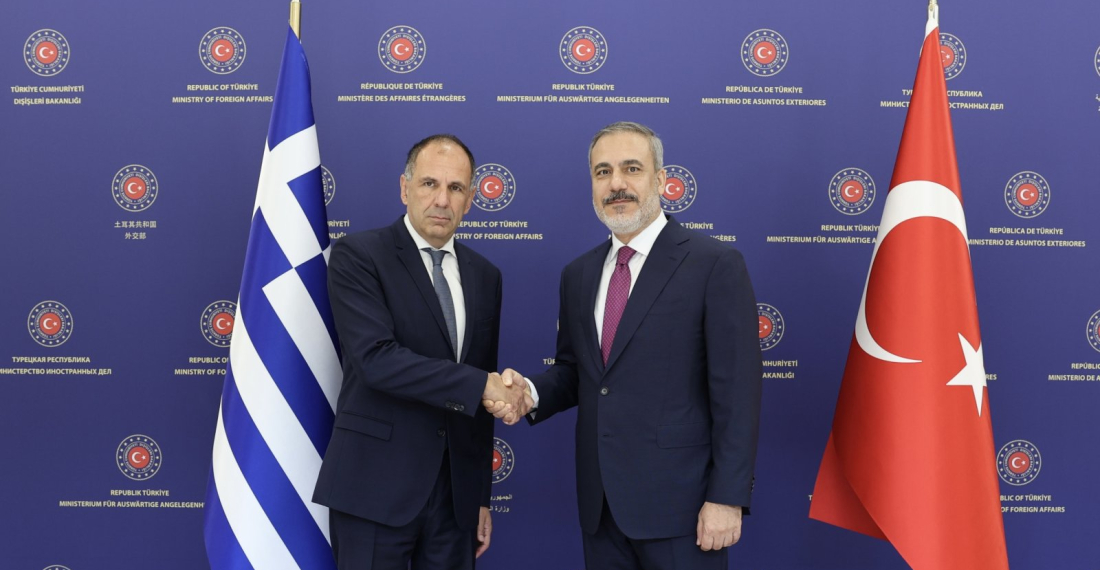Türkiye has entered a new and positive era in its relations with Greece, Turkish Foreign Minister Hakan Fidan said Tuesday at a joint press conference with his Greek counterpart Giorgos Gerapetritis in Ankara.
“Ankara and Athens have differences of opinion in the Aegean and Mediterranean. The sides now must bring a new approach to solving their problems,” Fidan told reporters after talks with Gerapetritis on issues that have troubled relations between the two countries for decades. Tuesday’s meeting was held ahead of the one on September 18 between Greek Prime Minister Kyriakos Mitsotakis and Turkish President Recep Tayyip Erdogan on the sidelines of the United Nations General Assembly in New York
The Greek newspaper, Kathimerini said that the meeting in Ankara on Tuesday " was seen as a window of opportunity that could lead to progress on low-policy issues which in the long run could lay the groundwork for both countries to agree to resort to the International Court of Justice at The Hague. The friendly environment on Tuesday was in stark contrast to a meeting two years prior when the previous Greek and Turkish foreign ministers essentially argued at a joint news conference in Ankara.
The newspaper said that one of the results of Tuesday’s meeting is that responsibility for direct communication in case of crises has been transferred to the Greek and Turkish foreign ministers.
Another takeaway was the extension of the moratorium both on the ground and in rhetoric, if possible. Both sides also agreed that by the time the High Cooperation Council convenes, tangible and deliverable results at various levels will be achieved, especially from the rich list of the positive agenda.
The Turkish newspaper, Daily Sabah, agreed that Tuesday’s meeting "took place in a friendlier climate triggered by Greece sending assistance to Türkiye following two devastating earthquakes and Türkiye offering condolences after a deadly train crash in Greece earlier this year.
It also followed a rare meeting between President Recep Tayyip Erdoğan and Greek Prime Minister Kyriakos Mitsotakis on the sidelines of a NATO summit in Vilnius in July, which was hailed as a positive milestone by both countries.
“We have agreed to maintain dialogue with Greece without preconditions,” Fidan said after Tuesday's meeting, stressing that Türkiye is prepared to develop ties “on the basis of common interests in all areas.”
According to Gerapetritis, the neighbors are expected to hold a high-level cooperation council meeting in Thessaloniki before the end of the year, which would be the first such meeting in seven years.
“Starting talks at once is the most critical step and confidence-building measures and talks between Türkiye and Greece will start soon,” Gerapetritis noted.
Fidan also said he reiterated Ankara’s expectations from the EU.
For his part, Gerapetritis said Greece has supported Ankara’s "EU tendency" for long years and is ready to back their recently reaffirmed ambition to join the bloc, "provided it meets the required conditions."
Source: commonspace.eu with ekathimerini.com (Athens), Daily Sabah (Ankara) and agencies
photo: Turkish Foreign Minister Hakan Fidan at a joint press conference with his Greek counterpart Giorgos Gerapetritis in Ankara on Tuesday, 5 September 2023.






